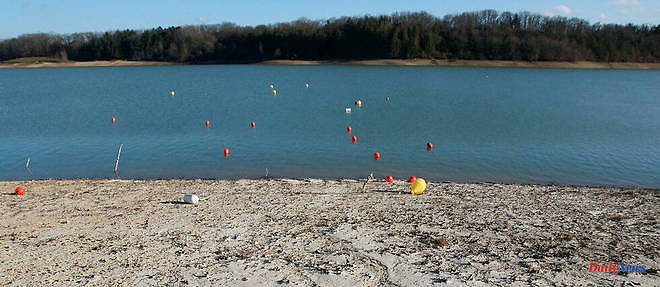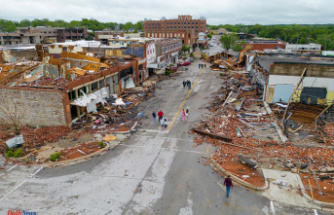An abnormally dry winter. After the infernal drought of last summer, France still lacks water, Météo-France alert. The alarm was sounded on February 13: the 1989 record, with 22 days without significant rain, or less than one millimeter on the country on average each day, was beaten. Something to worry specialists for the coming summer. "1989 is the driest year known in France, more than 2022, which comes just behind", recalls Serge Zaka, doctor in agroclimatology.
"If the state of the water tables was satisfactory, perhaps this information would have been anecdotal..." But this meteorological drought comes after an already very dry year 2022 - 25% rainfall deficit according to Météo-France - which left the pennies - soils with a large water deficit. "We are starting 2023 with the aftermath of last year" and, if the water tables are higher than in summer, "three quarters are below the average for the month of February", adds Serge Zaka.
The winter groundwater recharge period, which lasts from November to March, is nevertheless crucial and partly conditions the water resources for the coming summer. "All is not lost, it can still rain", relativizes the agroclimatologist, who nevertheless considers that with the delay and the situation inherited from last year, "it is unlikely that they will recharge entirely ".
If the situation does not improve by the end of winter, we can still hope for abundant rains in the spring. They would not make it possible to recharge the basements because the water will be absorbed by the plants in full awakening, but would avoid pumping in the water tables to irrigate the fields. These spring rains also condition the availability of fodder, to feed the farms, recalls Serge Zaka. “In 2022, the yield was down 24%, but that was offset by the excess in 2021. This year, there is no reserve. »
The summer 2022 drought was directly linked to a strong anticyclone. This phenomenon, the same that we know in mid-February, repels precipitation and promotes evapotranspiration of the soil by higher than average temperatures. If anticyclones are not more frequent, "the emissions of greenhouse gases and the global warming they cause contribute to making them more intense and more widespread", underlines Davide Faranda, CNRS climatologist at the Institut Pierre- Simon-Laplace and author of a study on the 2022 drought published in Environmental Research Letters.
Last summer's drought was made "at least 20 times more likely" by human-induced global warming, said another study by the World Weather Attribution network of researchers, published in October. These intense climatic phenomena are set to increase without sufficient measures to limit the rise in global temperatures.
In the short term, Serge Zaka considers it essential "to anticipate now to take measures and pump less into the groundwater" rather than waiting for orders restricting water consumption this summer, when it will be too late. "In 2022, we saw the drought coming, but we did nothing..."
In the Pyrénées-Orientales, where the fall rainfall was 70% lower than normal, the decrees of last summer have never been lifted. Further on the Mediterranean coast, the prefect of Var placed the majority of the department on drought alert this Friday, February 17, reinstating water-related restrictions. They had only been lifted since December 15...












